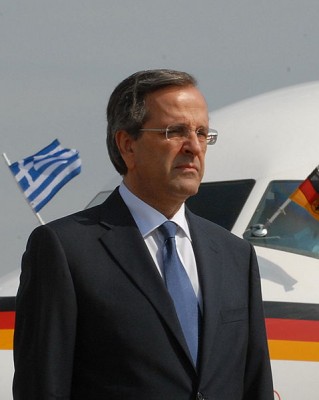A bit different anniversary. Club of the sinking ones has new members. The French are shouting: „That’s enough”!
We celebrated the fifth anniversary of the Lehman Brothers fall on 15th September, while Swedes had another celebration just a day before that – on 14th September 2013 they voted against joining the eurozone in a referendum. As Mats Persson, the director of an independent think-tank Open Europe, has remarked: „the public can opt for perfectly rational and responsible outcomes that would not occur if politicians were left to their own devices“
So far, the eurozone‘s patching of the holes continues. We have two rescue funds, the ECB equipped in intervention instruments, and the only thing we need is a banking union. What is being built these days is the second pillar, the so-called Single Resolution Mechanism. You can imagine it as a fund in which the responsible banks and their clients pool money for a prospective rescue of the capricious banks. The problem is in the EU treaties, the changing of which would be lengthy. Germans have reported that they’ve found a legal way how to complete the mechanism without changing the existing law.
Meanwhile, the debt storm still rages. The Commission has decided to extend the Spanish bank bailout with additional „associated measures“ if Spaniards don’t reach the deficit of 6.5% to GDP. We will see what the measures will be. It’s not only the southern Europe that does not fulfil the goals. Other members have joined the club of worsened debt indicators. Sometimes it’s called the Titanic Club, but Costa Concordia Club would be more fitting. The problem was not caused by a wandering iceberg, but irresponsible captains performing risky manoeuvres with other people’s money. The Netherlands predicts that the deficit of 2014 will reach 3.3% of GDP, which misses the target as well. Finns will probably cross the limit on public debt of 60 % to GDP for the first time. Unfortunately, they will cross it well over the 60%, which means breaching the Stability and Growth Pact criteria. Next year, the French debt will touch a record of 2 trillion euros, which will catapult them to the elite club of Italy and Germany. At the same time, they will be much closer to the Club 100 membership as the relative debt will exceed 95% of GDP.
No wonder that there are more and more people raising the alarm in France. State auditor has urged the government to place more importance on budget cuts rather than on tax increases. The country is allegedly running the risk of a possible rise in interest rates as it relies on short-term financing. Sarkozy’s and Hollande’s governments have raised the taxes by 60 billion euros since 2011 (the so-called “austerity measures”). It has been admitted also by the president in a television interview: „That’s a lot – that’s to say, too much“.
It’s too much also for the French car manufacturers. August car sales in Europe dropped to the lowest value since the records began in 1990. While Renault did well, the second biggest European automotive company PSA has lost 18% in the region, which may have consequences for the employees of its Trnava factory – they will have more free time than they would like to have. Whereas powerful PSA still has chances to be rescued by French (?) taxpayers, smaller companies are no that lucky.
Last week I wrote about the proposal to create a European defence fund, and this week Italy has come up with a great idea of doubling the European budget. They simply can’t sleep thinking about another bunch of people who could make their money available.
Even phlegmatic people are getting mad. For example, Herman Van Rompuy, the EU president – in case you don’t know – got irritated by the European Court of Auditors. The auditors have refused to sign off the European budget for the consecutive 18 years (!!) because of the wasteful spending and fraud concerns. Rompuy thinks that auditors should aim to improve the EU image rather than criticize Brussels. He said that it’s important to show „the whole picture with all its nuances“. In times of crisis, it is vital to foster confidence and „convince Europeans and demonstrate clearly that Europe is not the source of problems, but the solution“. His Europe is synonymous with Brussels. And his statements seem to be copied from Atlas Shrugged.
The crisis continues, but there’s still time to play with details in Brussels. Now they have come up with an idea to ban country of origin flags on meat packs; only the name of the member state will be allowed. The point of a regulation like this remains mysterious to common people. Yet it’s clear that it will drive more British people towards euroscepticism, as the islanders are proud of their lamb and mutton.
Sometimes even a little regulation may give rise to big issues. One that has been imposed in the ‘80s says that one needs to have a fifteen-minute break after two hours of working on the computer due to health reasons. In INESS, we have solved the problem by assembling a pull up bar into the door frame – without the help of any regulation. But the break regulation feasibility is questionable. Greeks have solved it cleverly. They summed up the break periods and granted a six-day long, additional vacation to the people intensively using the computer. The fact is that the health aspect disappears completely if the vacation is not all spent in the gym. Low competitiveness of Greek employees is the only outcome of the regulation. No wonder that the country is struggling.
Prime Minister Antonis Samaras stated that the pre-crisis living standards might recover in six years at the earliest. According to an optimistic forecast of a ruling politician, this means 12 lost years for Greece.
Don’t lose a single day!
Translated by Michal Kollár



